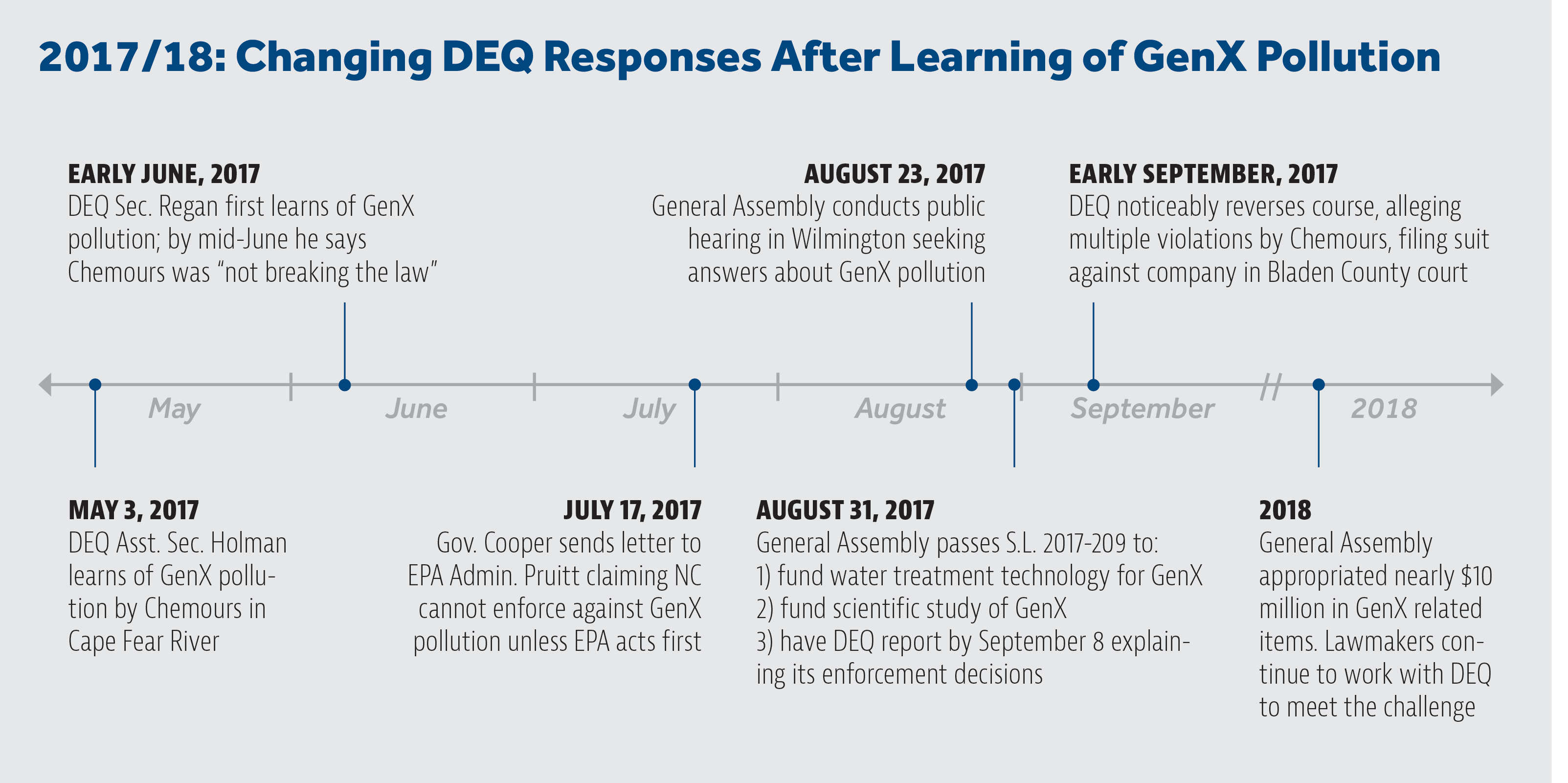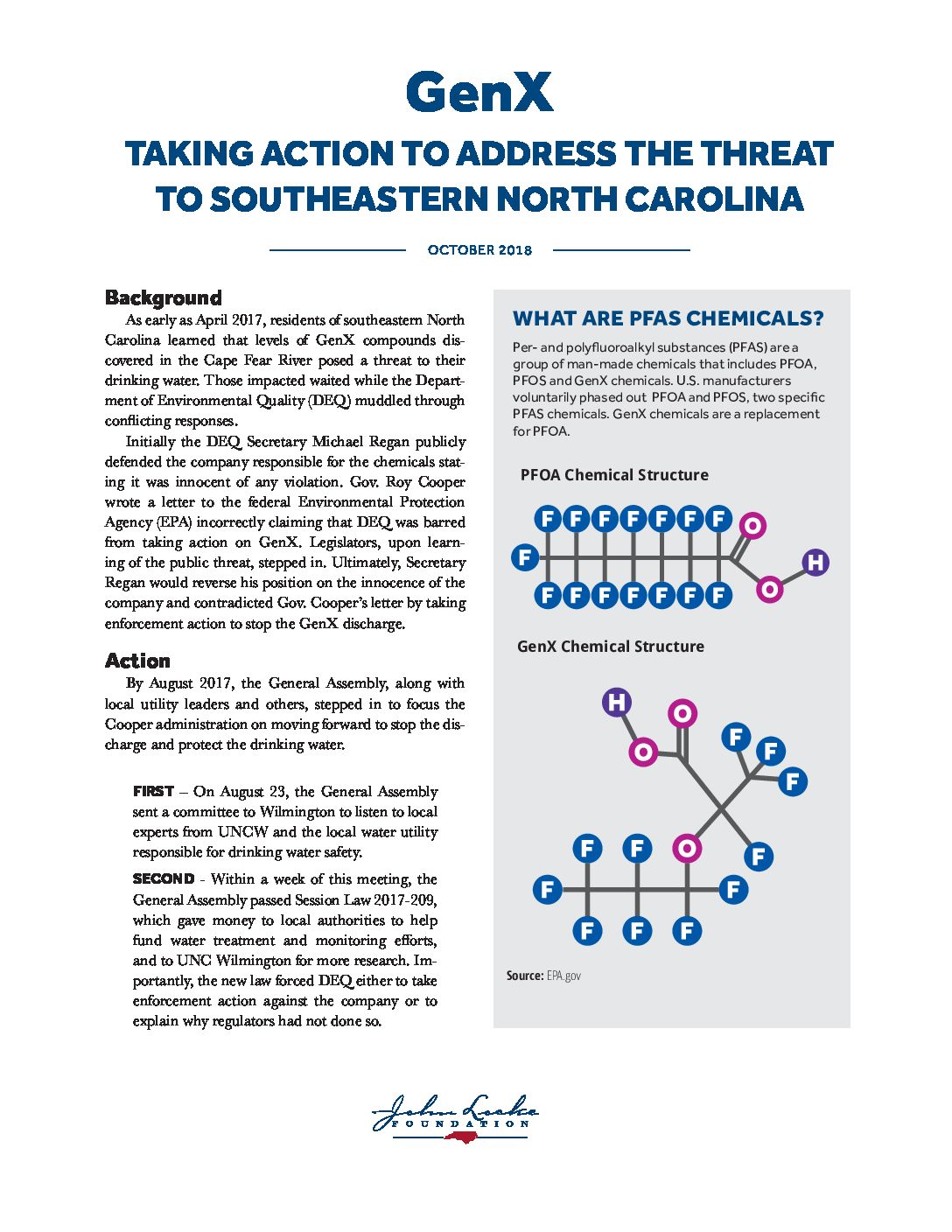Background
As early as April 2017, residents of southeastern North Carolina learned that levels of GenX compounds discovered in the Cape Fear River posed a threat to their drinking water. Those impacted waited while the Department of Environmental Quality (DEQ) muddled through conflicting responses.
Initially the DEQ Secretary Michael Regan publicly defended the company responsible for the chemicals stating it was innocent of any violation. Gov. Roy Cooper wrote a letter to the federal Environmental Protection Agency (EPA) incorrectly claiming that DEQ was barred from taking action on GenX. Legislators, upon learning of the public threat, stepped in. Ultimately, Secretary Regan would reverse his position on the innocence of the company and contradicted Gov. Cooper’s letter by taking enforcement action to stop the GenX discharge.
Action
By August 2017, the General Assembly, along with local utility leaders and others, stepped in to focus the Cooper administration on moving forward to stop the discharge and protect the drinking water.
First – On August 23, the General Assembly sent a committee to Wilmington to listen to local experts from UNCW and the local water utility responsible for drinking water safety.
Second – Within a week of this meeting, the General Assembly passed Session Law 2017-209, which gave money to local authorities to help fund water treatment and monitoring efforts, and to UNC Wilmington for more research. Importantly, the new law forced DEQ either to take enforcement action against the company or to explain why regulators had not done so.
Third – Within a week after receiving the ratified bill, the Cooper administration reversed course, threatening the company’s permit, issuing a Notice of Violation, and filing a complaint in a Bladen County court alleging a wide range of violations by the company.
Where Things Stand Today
Pressure to act imposed by the General Assembly through its GenX legislation has stopped the discharge and pushed the threat to southeastern North Carolina to the top of the state’s priority list.
The administration’s changed position was best summarized by Joel A. Mintz, a former chief attorney with the EPA, when he noted DEQ’s shift in their approach: “Rather than persist in its passive tolerance of the company’s pollution, the DEQ began to exercise its enforcement authority in a more vigorous manner.”





